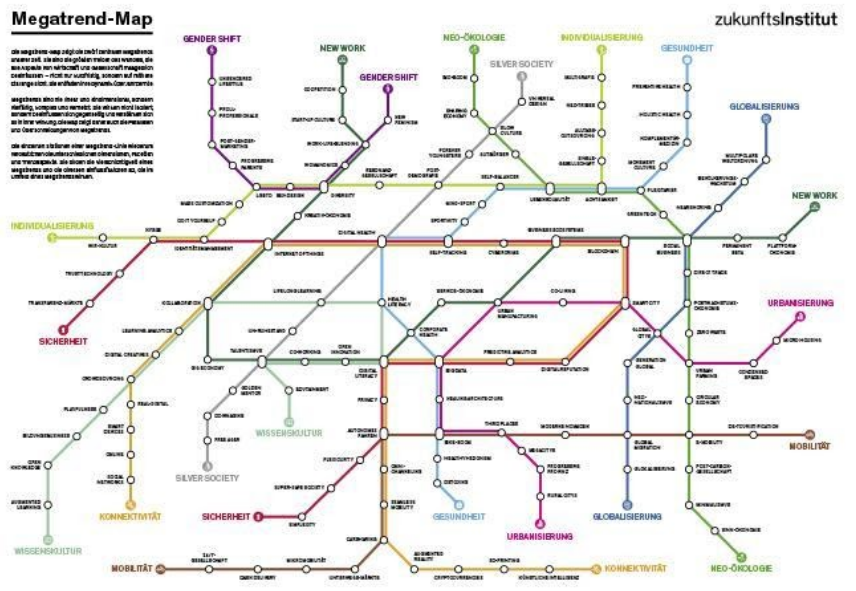
Creativity In Teaching
- /
Megatrend
Megatrends describe long-term trends. By that, they can be used to predict future scenarios and answer questions relevant to decison makers and future planners.
Description
What is this technique about
Megatrends describe long-term trends. By that, they can be used to predict future scenarios and answer questions relevant to decison makers and future planners.
Where does it come from
The term Megatrend was coined by John Naisbitt and describes long-term trends that affect humankind. The so-called Zukunftsinstitut has used the term Megatrend to define and organize a map to guide which trends are correlating with one another.

https://www.zukunftsinstitut.de/artikel/die-megatrend-map/
For which purposes it is used (why in your engineering teaching)
Megatrends can serve as a basis for future scenario forecasts. In this sense they allow for two positive aspects a) they inspire the participants and b) they show the connection between certain trends. That enables the participants to see the bigger picture and make novel connections themselves.
Megatrends are characterized by three factors; 1) they last longer than 50 years, 2) they concern all areas of life, e.g. civilization, technology and economy, and 3) they are global and complex phenomenons.
General overview of how to implement it
Preparation:
1. Research the megatrends and decide which one(s) might suit your topic.
2. Analyze or research the societal and technological influence of the respective trends.
3. Make the trends visual by showing them on-screen/whiteboard.
Execution:
1. Introduce the participants to the topic of megatrends.
2. Describe and show them the factors of influence.
3. Let the participants write down what comes to their mind regarding the trend.
4. Collect and present the ideas to others (sticking to a Wall for example). Annotation by participants is possible.
Materials/equipment needed
Projector
Sticky notes
Poster or cards with megatrends
Paper and pencil for participants
Resources
References
Books Naisbitt, J. (1982). Megatrends. New York, 17, 1982. Horx, M. (2011). Das Megatrend-Prinzip: wie die Welt von morgen entsteht. DVA.

 (1).jpg)
